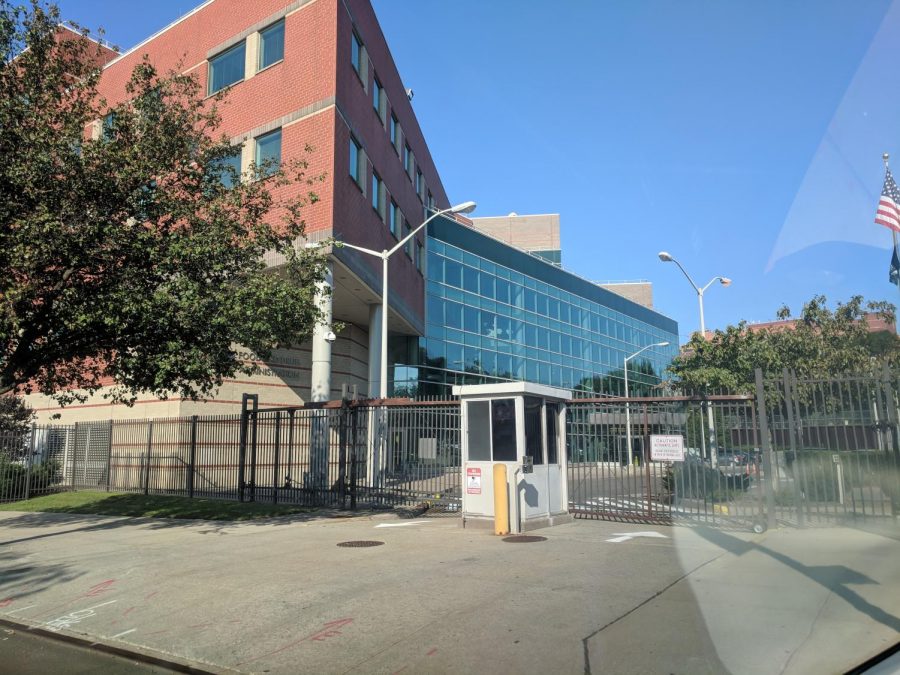FDA approves new Alzheimer’s drug amid backlash
June 19, 2021
The Food and Drug Administration approved a new drug, Aduhelm, for treating Alzheimer’s disease — the first one in almost two decades. Its approval, however, has stoked controversy in the medical community, with three experts subsequently quitting the FDA panel.
Alzheimer’s is a degenerative disease that impacts cognitive skills like memory and thinking. Currently, more than six million Americans are diagnosed with Alzheimer’s or other dementias, and it is also the sixth-leading cause of death in the United States, according to the Alzheimer’s Association. Furthermore, experts believe the number of diagnosed Americans could double in decades to come.
Several companies like Pfizer Inc. strived to create a new Alzheimer’s drug over the years but gave up. Even Massachusetts-based biotech company Biogen Inc., which produces Aduhelm with the Japanese company Eisai Inc., momentarily chose not to get regulatory approval in 2019.
Biogen had conducted trials that showed different results.
Analyses from one indicated “people who received a high dose of the drug (which was the dosage approved by the FDA Monday) saw a small reduction in beta-amyloid plaques over 78 weeks,” according to Ars Technica.
Biogen’s drug “targets a ‘sticky’ compound in the brain known as beta-amyloid, which is hypothesized to play a role in the devastating disease,” according to CNBC. However, removing this plaque may not help Alzheimer’s patients avoid memory and thinking issues, according to NPR.
Participants in one trial showed signs of improved cognition, but those in another trial saw no change. Lastly, 40% of people who received the drug developed brain swelling.
In an 8–1 vote in November, an FDA advisory panel expressed that the medication should be rejected.
They argued that Biogen’s late-stage study didn’t show “strong evidence” that the drug was effective and two other panelists called the data “uncertain.”
Their concerns of a lack of effectiveness were not taken into account and the drug was not just approved last week, but also approved on an “accelerated basis.”
The term “accelerated basis” is usually used for cancer medications, and it means that benefits in the short-term use of the drug are likely, while long-term usage would require a fourth phase of trials, according to NBC.
Given how urgently the drug is needed, its approval has sparked celebrations among patients and some doctors, while other doctors are wary of its usage.
For instance, Dr. Aaron Kesselheim, one of the three panel experts to resign, expressed that approving the drug creates a dangerous precedent.
“Accelerated Approval is not supposed to be the backup that you use when your clinical trial data are not good enough for regular approval,” Kesselheim tweeted.
He further expressed frustration with the decision in a resignation letter, calling it “probably the worst drug approval decision in recent U.S. history,” according to NPR. He also alluded to potential bias, saying that some questions the FDA asked were worded in a manner that would result in responses that put the drug in a favorable light.
Still, others remain more optimistic.
“Now we can say there is a treatment available to help people with this disease and give them more time with their families, more quality time so that they can continue to build those memories,” Alzheimer’s Association Minnesota-North Dakota CEO Susan Parriott said.
This drug also sparks hope for American citizens who know someone with Alzheimer’s.
“I so wish it had been available ten years ago when we were dealing with my husband’s disease, but it will be a godsend for those people who now are in the early stages and have this as an option,” North Dakotan resident Kae Lovaas Jewell said.
Hence the community of dementia experts is torn, as some feel Aduhelm should not have been approved, while others are relieved a new Alzheimer’s drug has hit the market after so many years.
Regardless of whether a patient should take the drug, many may not be able to afford it. Though Biogen estimates that about 1.5 million people could be eligible to take the drug, patients who choose to undergo this treatment must receive IV infusions that could amount to $56,000 a year.
Low-income Americans would have to rely on Medicare or Medicaid to cover the cost, which could then amount to billions of dollars a year for Medicare to pay, according to the Kaiser Family Foundation.
“If 1 million Medicare beneficiaries receive Aduhelm, which may even be on the low end of Biogen’s expectations, spending on Aduhelm alone would exceed $57 billion” a year, the foundation said. That cost would be “far surpassing spending on all other Part B-covered drugs combined.”
It is important to note that even if Medicare covers this drug, Aduhelm is also limited to patients in the early stages of Alzheimer’s, which the FDA does not state on the drug’s label.
That group, however, is not easy to identify because signs of Alzheimer’s can be mistaken for signs of simply growing older, such as memory loss, according to NBC.
Though Aduhelm gives hope to the Alzheimer’s community, backlash from experts and lack of beneficial trial results leave the FDA in a controversial position.








